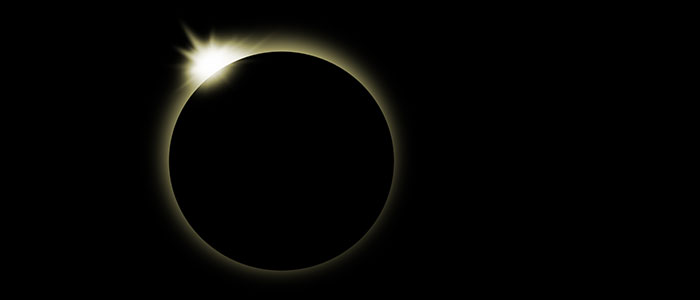
Mark your Calendars!!! On Monday, Aug. 21, 2017, a solar eclipse will be visible across the entire continental United States.
A solar eclipse occurs when the moon blocks any part of the sun, and with this one, all of North America will experience at least a partial eclipse lasting 2 to 3 hours.
A lucky few million people along a 70-mile-wide path from Oregon to South Carolina will experience a brief total eclipse when the moon completely blocks the sun for up to 2 minutes. For that 2 minutes or so it will look like nighttime along that path.
This total eclipse will make the solar corona visible, and stars and the planets may also be visible during this time.
But looking directly at the sun before it is covered is unsafe. Although there is a limited chance of eye damage if you are in the proper area during the total eclipse it is not worth the risk of retinal damage to even take a quick look at the eclipse if it is not “total”.
A large part of the country is not along the pathway where the eclipse will be total so you should not look at the sun without protection.
The only safe way to look directly at the eclipse is through special solar filters, such as “eclipse glasses” or hand-held solar viewers.
Ordinary sunglasses, even if they are very dark and polarized, are not safe for looking at the sun. To date, four manufacturers have certified that their eclipse glasses and handheld solar viewers meet the ISO 12312-2 international standard for such products: Rainbow Symphony, American Paper Optics, Thousand Oaks Optical, and TSE 17.
All the companies above have instructions printed on or packaged with their filters. You MUST follow the instructions to keep your eyes safe. Always supervise children using solar filters.
Specific instructions are found below, courtesy of NASA’s eclipse website https://eclipse2017.nasa.gov/safety:
1. Stand still and cover your eyes with your eclipse glasses or solar viewer before looking up at the bright sun. After glancing at the sun, turn away and remove your filter - do not remove it while looking at the sun.
2. Do not look at the uneclipsed or partially eclipsed sun through an unfiltered camera, telescope, binoculars, or other optical devices. Similarly, do not look at the sun through a camera, a telescope, binoculars, or any other optical device while using your eclipse glasses or hand-held solar viewer - the concentrated solar rays will damage the filter and enter your eye(s), causing serious injury. Seek expert advice from an astronomer before using a solar filter with a camera, a telescope, binoculars, or any other optical device.
3. A solar eclipse is one of nature’s grandest spectacles. By following these simple rules, you can safely enjoy the view and be rewarded with memories to last a lifetime. An eclipse is a rare and striking phenomenon you won't want to miss, but you must carefully follow safety procedures. Don't let the warnings scare you away from witnessing this singular spectacle! You can experience the eclipse safely, but it is vital that you protect your eyes at all times with the proper solar filters. No matter what recommended technique you use, do not stare continuously at the sun. Take breaks and give your eyes a rest! Do not use sunglasses: they don't offer your eyes sufficient protection. One excellent resource for safe solar eclipse viewing is here: https://www.nasa.gov/content/eye-safety-during-a-total-solar-eclipse.
The solar eclipse is a spectacular sight but please remember to watch it safely.
Article contributed by Dr. Brian Wnorowski, M.D.
This blog provides general information and discussion about eye health and related subjects. The words and other content provided on this blog, and in any linked materials, are not intended and should not be construed as medical advice. If the reader or any other person has a medical concern, he or she should consult with an appropriately licensed physician. The content of this blog cannot be reproduced or duplicated without the express written consent of Eye IQ.

